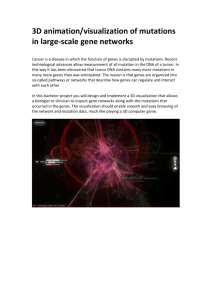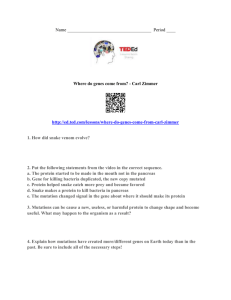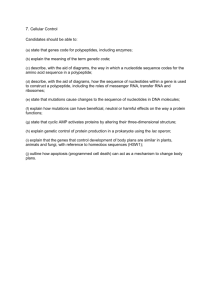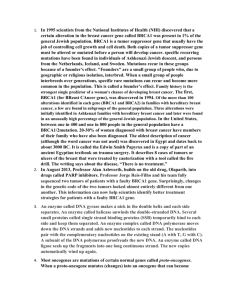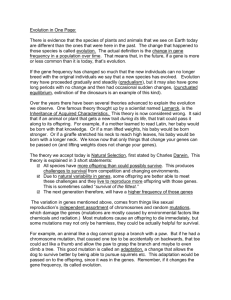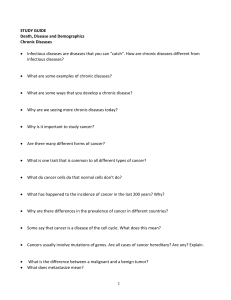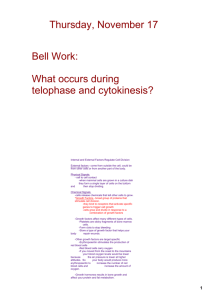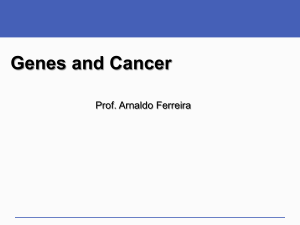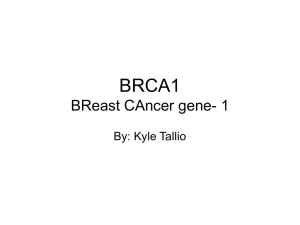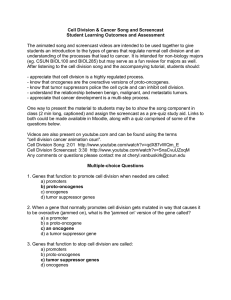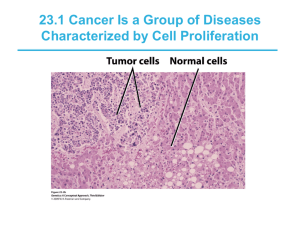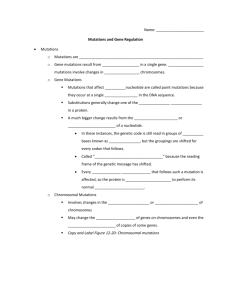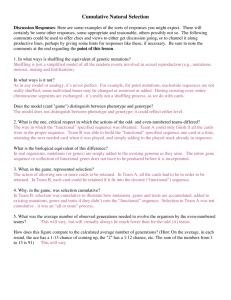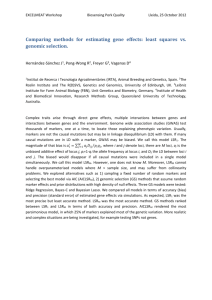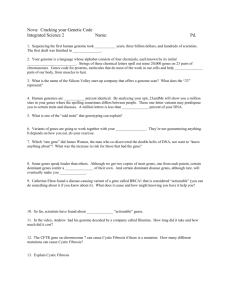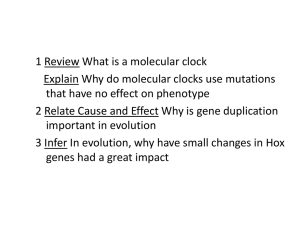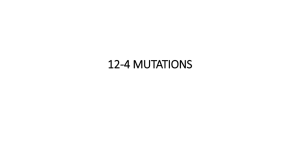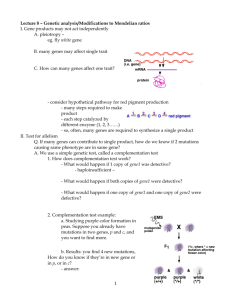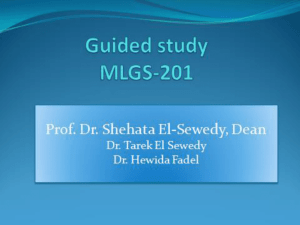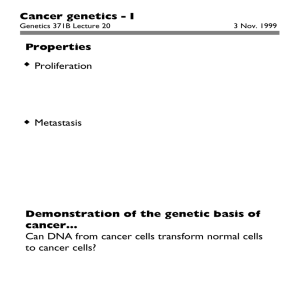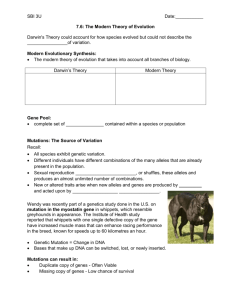The cancer gene we all have
advertisement
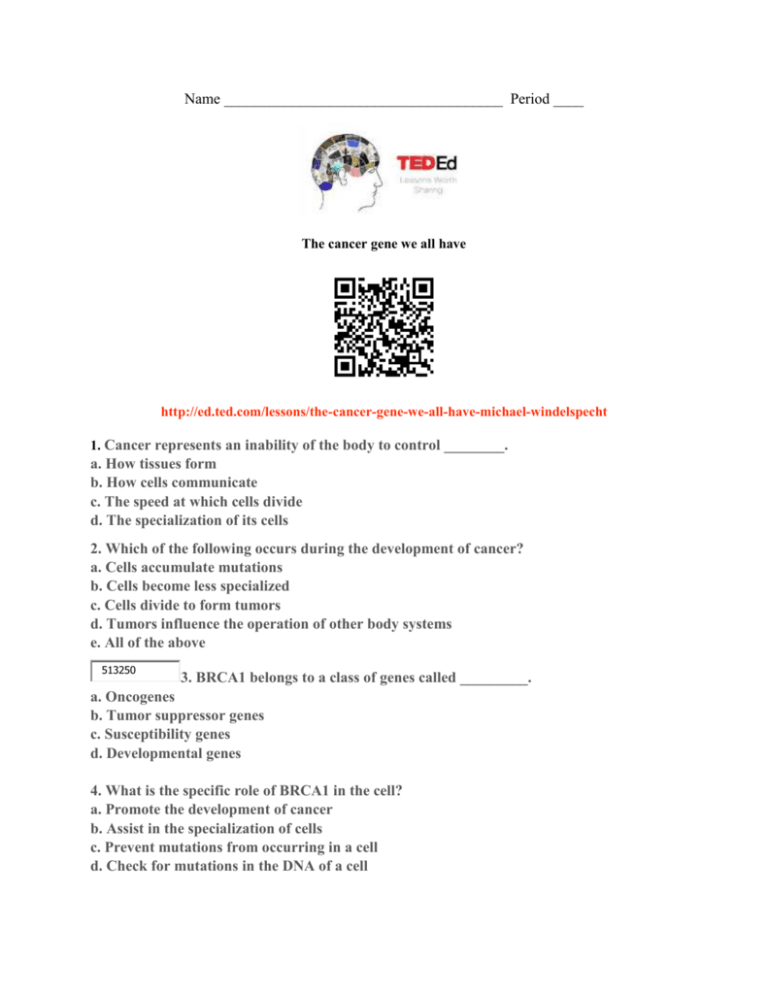
Name _____________________________________ Period ____ The cancer gene we all have http://ed.ted.com/lessons/the-cancer-gene-we-all-have-michael-windelspecht 1. Cancer represents an inability of the body to control ________. a. How tissues form b. How cells communicate c. The speed at which cells divide d. The specialization of its cells 2. Which of the following occurs during the development of cancer? a. Cells accumulate mutations b. Cells become less specialized c. Cells divide to form tumors d. Tumors influence the operation of other body systems e. All of the above 513250 3. BRCA1 belongs to a class of genes called _________. a. Oncogenes b. Tumor suppressor genes c. Susceptibility genes d. Developmental genes 4. What is the specific role of BRCA1 in the cell? a. Promote the development of cancer b. Assist in the specialization of cells c. Prevent mutations from occurring in a cell d. Check for mutations in the DNA of a cell 5. Suppose that a cell has a mutation in one of its BRCA1 genes that inactivates the gene. What will this do to the rate at which the cell divides? a. It will speed up the rate at which the cell divides b. It will slow down the rate at which the cell divides c. It will have no effect on the rate at which the cell divides 6. Another class of genes, called the proto-oncogenes, function to a similar manner to the gas pedal in a car. Only a single copy of a proto-oncogene needs to be mutated in a cell for it to lose control of cell division. Why would this be the case? 7. There may be hundreds of mutations in the BRCA1 gene that influence its ability to regulate cell division. Why might some of these mutations be more likely to result in the formation of cancer than others? 8. How might a cell use a combination of proto-oncogenes and tumor suppressor genes to regulate cell division? Under what conditions might a cell want to divide faster?
